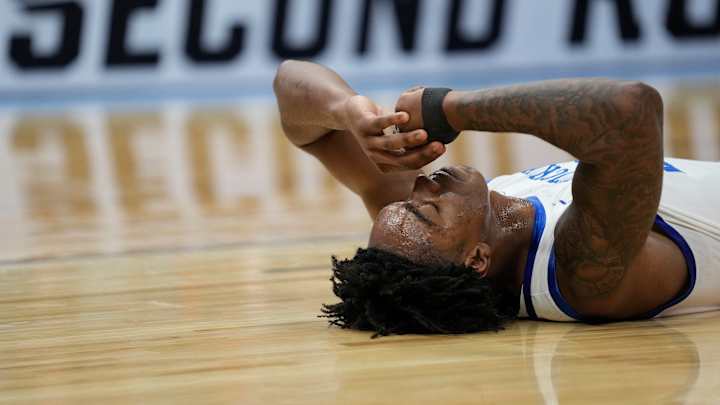The Punishment That Nearly Broke Kentucky’s Players — And Why Mark Pope Calls It Standard
When Amari Williams transferred to Kentucky, he knew he was stepping into a basketball culture unlike any other. The program’s reputation for intensity, accountability, and relentless preparation preceded it. But even Williams, a seasoned veteran with years of competitive experience, was blindsided by the sheer brutality of one punishment that has since become the stuff of team legend.
The offense? A teammate arrived late. Not egregiously late — not even on time by most people’s standards. Just not five minutes early, which in Mark Pope’s Kentucky program is the definition of punctuality.
The result? One of the most grueling drills in basketball: the “17.”
For the uninitiated, a “17” requires players to sprint sideline-to-sideline across the width of the court 17 times, full speed, no jogging, no shortcuts. It’s exhausting when done once. Twice pushes the limits of conditioning. But what Pope demanded that day stunned even his toughest players.
Seventeen 17s.
That’s 289 all-out sprints, nearly 11 miles of running inside a gym. Legs gave out. Jerseys were drenched. Breathing was ragged. Players collapsed between sets, only to be pushed back to their feet. Williams recalled that moment vividly:
“We thought we were doing one 17,” he said. “Next thing we know, it turned into 17 of them. Guys were gasping, barely standing. It was crazy.”
For outsiders, it may sound harsh, even excessive. But for Pope, it wasn’t punishment for punishment’s sake — it was a message. At Kentucky, discipline isn’t negotiable. Accountability doesn’t just apply to individuals, it applies to the entire roster. One player’s mistake becomes every player’s burden, reinforcing the standard that no detail is too small when chasing championships.
“I call it the standard,” Pope has said in the past when asked about his culture. “If you want to wear Kentucky across your chest, you live up to it. Every second matters. Every action matters. That’s how you build trust, and that’s how you win.”
The drill was more than conditioning. It was a test of mental toughness, of how far players were willing to go for one another. By the time it ended, there were no complaints — only exhausted silence and a deeper sense of unity.
Williams admitted it was one of the hardest experiences of his career, but he also recognized its purpose. “You don’t forget something like that,” he said. “It made us realize how serious this program is about holding each other accountable. You either buy in, or you don’t last here.”
For Big Blue Nation, this glimpse into Pope’s methods is a reminder of why expectations remain sky-high in Lexington. Kentucky doesn’t just recruit talent — it forges warriors. And if surviving 17 “17s” doesn’t break a player, it may just prepare him for the battles that lie ahead in March.






















